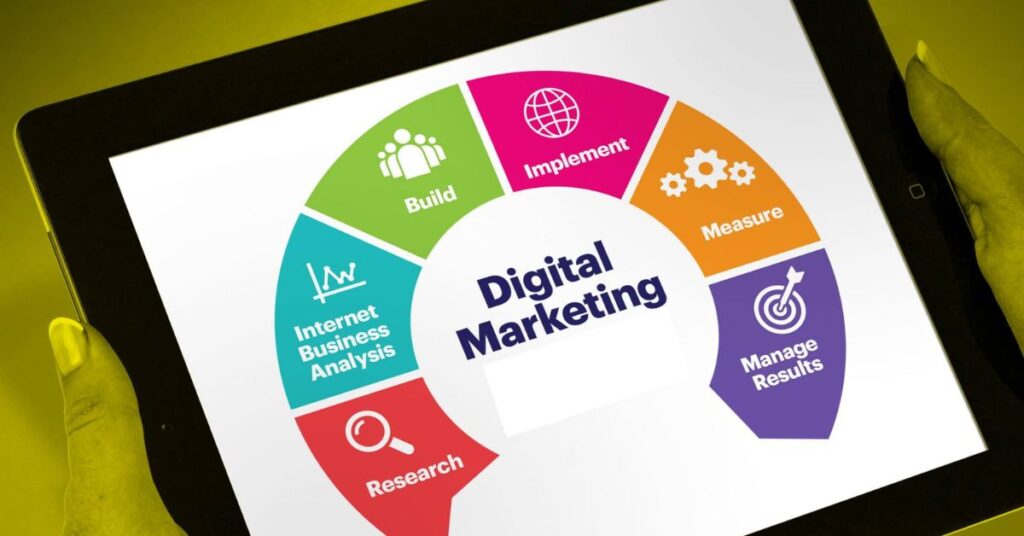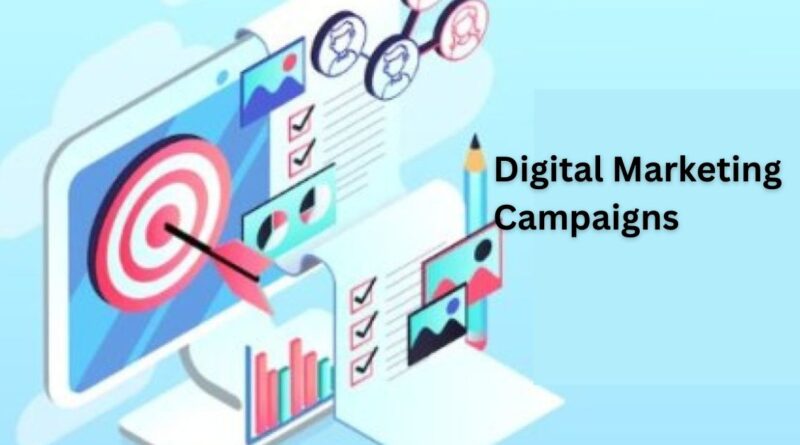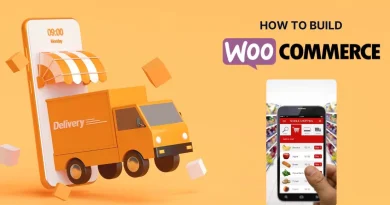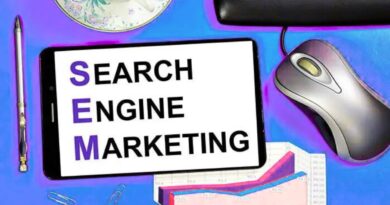Digital Marketing Campaigns Explained: Boost Your Online Success
Digital marketing has become the backbone of modern business growth. With the rapid adoption of technology and the internet, businesses have shifted from traditional advertising to online strategies that reach a global audience. A digital marketing campaign is a carefully planned set of actions aimed at promoting a product, service, or brand through online channels. These campaigns help businesses engage with their target audience, build trust, increase sales, and achieve long term success. To succeed in this competitive environment, it is important to understand the different types of digital marketing campaigns available. Each campaign serves a unique purpose, and businesses often use a combination of them to maximize their impact. This article explores the major types of digital marketing campaigns, their benefits, and how they can be applied to real business scenarios.
Search Engine Optimization Campaigns
Search engine optimization, commonly known as SEO, is the process of improving a website’s visibility in search engines like Google. An SEO campaign focuses on increasing organic traffic by ranking higher in search results for specific keywords.
Key aspects of SEO campaigns include:
-
On page optimization such as improving titles, meta descriptions, and keyword placement.
-
Off page optimization which involves building high quality backlinks.
-
Technical SEO improvements like increasing site speed and mobile responsiveness.
The primary goal of an SEO campaign is to generate long term traffic that does not rely on paid ads. When executed correctly, SEO builds authority, increases trust among users, and provides a steady flow of potential customers.
Pay Per Click Advertising Campaigns
Pay per click, or PPC campaigns, are paid advertisements that appear on search engines or other online platforms. In this type of campaign, businesses only pay when users click on their ads. Google Ads and Bing Ads are popular platforms for PPC campaigns.
Benefits of PPC campaigns include:
-
Immediate visibility on search engines.
-
Targeting options based on demographics, location, and interests.
-
Measurable results with detailed analytics.
PPC campaigns are particularly useful for new businesses that want quick exposure or for time sensitive promotions. They work best when combined with SEO strategies to balance both short term and long term goals.
Social Media Marketing Campaigns
Social media has transformed the way brands connect with audiences. A social media marketing campaign involves using platforms such as Facebook, Instagram, LinkedIn, and TikTok to promote products or services.
There are different types of social media campaigns:
-
Awareness campaigns designed to introduce a brand to new audiences.
-
Engagement campaigns that encourage likes, comments, and shares.
-
Conversion campaigns aimed at driving users to take actions such as signing up or making a purchase.
The advantage of social media campaigns is that they allow businesses to build communities, create engaging content, and interact directly with customers. The success of such campaigns depends on creative storytelling, consistent posting, and strong audience insights.
Content Marketing Campaigns
Content marketing campaigns focus on creating valuable and informative material that attracts and retains a target audience. Instead of directly promoting a product, content marketing educates and builds trust.
Examples of content marketing include:
-
Blog posts that answer common questions.
-
Videos that explain how products work.
-
Infographics that present data in a visual way.
-
E books and whitepapers that provide in depth knowledge.
A content marketing campaign positions a brand as an expert in its field. Over time, high quality content improves SEO rankings, generates leads, and nurtures long term customer relationships.
Email Marketing Campaigns
Despite the rise of new platforms, email remains one of the most powerful tools for digital marketing. Email marketing campaigns are highly targeted and allow businesses to communicate directly with customers.
Types of email campaigns include:
-
Welcome emails for new subscribers.
-
Promotional emails for discounts and special offers.
-
Newsletter campaigns that provide regular updates.
-
Drip campaigns that send automated sequences of emails based on user actions.
The strength of email marketing lies in personalization. Businesses can segment their audience and tailor content to match customer preferences, resulting in higher open rates and conversions.
Influencer Marketing Campaigns
Influencer marketing campaigns leverage the popularity and credibility of influencers to promote products or services. Influencers are individuals who have a strong following on platforms like Instagram, YouTube, or TikTok.
Brands collaborate with influencers to:
-
Increase brand visibility.
-
Build trust with niche audiences.
-
Drive product sales through recommendations.
This type of campaign is highly effective because consumers tend to trust influencers more than traditional advertisements. Choosing the right influencer who aligns with the brand’s values is critical for campaign success.
Affiliate Marketing Campaigns
Affiliate marketing campaigns rely on partnerships with affiliates who promote a brand’s products in exchange for a commission on sales. Affiliates may use blogs, social media, or websites to drive traffic to the brand’s website.
Benefits of affiliate marketing include:
-
Low upfront cost for businesses.
-
Performance based payments that reduce risks.
-
Wide reach through multiple affiliates.
Affiliate campaigns are particularly useful for e commerce businesses that want to scale their reach without investing heavily in advertising.
Video Marketing Campaigns
Video is one of the most engaging forms of digital content. A video marketing campaign uses video to convey messages, showcase products, or share customer testimonials. Platforms like YouTube, Instagram Reels, and TikTok make video content easily accessible.
Video campaigns can include:
-
Explainer videos that simplify complex topics.
-
Product demonstrations that highlight features.
-
Brand storytelling videos that connect emotionally with audiences.
-
Live streaming events that allow real time interaction.
Video marketing is powerful because it appeals to both visual and auditory senses, making it easier for users to remember and trust a brand.
Remarketing Campaigns
Remarketing campaigns target users who have previously interacted with a website but did not complete a desired action. These campaigns remind potential customers of products they viewed and encourage them to return and complete the purchase.
For example, if a customer adds items to a shopping cart but does not check out, remarketing ads can appear on other websites or social media platforms to bring them back. Remarketing is effective because it focuses on people who already showed interest, making conversions more likely.

Mobile Marketing Campaigns
With smartphones becoming the primary device for online activities, mobile marketing campaigns are essential. These campaigns are designed specifically for mobile devices and include app based ads, SMS marketing, and push notifications.
Mobile campaigns offer advantages such as:
-
Direct communication with users.
-
Location based targeting.
-
High engagement rates due to frequent mobile usage.
A strong mobile campaign ensures that websites and content are fully optimized for mobile users, providing a seamless experience.
Native Advertising Campaigns
Native advertising refers to paid ads that match the look and feel of the platform on which they appear. Unlike banner ads, native ads blend naturally with content, making them less intrusive. Examples include sponsored articles on news sites or promoted posts on social media. Native advertising campaigns are effective because they provide value while promoting products, often resulting in higher engagement and trust.
Influencer Collaboration Campaigns
While influencer marketing involves individual endorsements, influencer collaboration campaigns go deeper by co creating products, hosting events, or producing exclusive content together. This form of partnership strengthens brand credibility and often leads to viral success.
Event and Webinar Campaigns
Hosting online events or webinars is another form of digital marketing campaign. These campaigns allow businesses to showcase expertise, demonstrate products, and build relationships in real time.
Event campaigns are particularly effective for B2B companies, as they provide an opportunity to network and generate qualified leads. Webinars also create opportunities to collect participant information for future email campaigns.
Conversion Rate Optimization Campaigns
Conversion rate optimization campaigns aim to improve the percentage of visitors who take desired actions on a website, such as making a purchase or signing up for a newsletter.
Strategies include:
-
A/B testing different versions of landing pages.
-
Improving call to action buttons.
-
Enhancing website design for better user experience.
Such campaigns ensure that businesses make the most out of existing traffic, increasing revenue without spending more on advertising.
Conclusion
Digital marketing campaigns are not a one size fits all solution. Every business has unique goals, audiences, and resources, which means selecting the right combination of campaigns is essential. From SEO and PPC to influencer partnerships and webinars, each type of campaign offers distinct benefits.The key to success lies in understanding the target audience, setting clear objectives, and continuously analyzing performance. When executed strategically, digital marketing campaigns have the power to transform small businesses into industry leaders and help established companies maintain their competitive edge.
FAQs
Q1. What is a digital marketing campaign?
A digital marketing campaign is a planned series of online strategies aimed at promoting a product, service, or brand through digital channels.
Q2. Which type of digital marketing campaign is best for small businesses?
Small businesses often benefit from social media marketing, email campaigns, and SEO because they are cost effective and provide long term results.
Q3. How is PPC different from SEO?
PPC provides immediate visibility through paid ads, while SEO focuses on long term organic traffic without paying for clicks.
Q4. Are email campaigns still effective?
Yes, email marketing remains one of the most effective methods for building direct communication with customers and driving conversions.
Q5. What is the role of influencers in digital marketing?
Influencers build trust with audiences, making their endorsements powerful for increasing brand visibility, credibility, and product sales.
Q6. What is remarketing and why is it important?
Remarketing targets users who showed interest but did not convert, reminding them to return and complete a purchase, improving conversion rates.
Q7. Can I combine different digital marketing campaigns?
Yes, combining strategies such as SEO, social media, and content marketing often provides the best results by covering multiple customer touchpoints.




